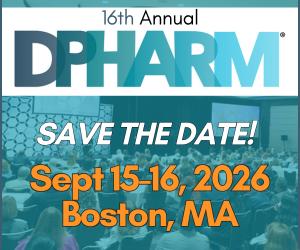Expanding Access and Accelerating Cancer Drug Development through Community-Based Oncology Research
START Center for Cancer Research is partnering with community oncology practices and health systems globally to improve cancer clinical trial expertise and capacity and ultimately make sure that more patients have access to early phase oncology trials.

What work are you leading to help address the challenges of bringing clinical trials to patients and to help advance drug development?
We're exclusively focused on cancer clinical trials in the community-based setting. We know that there are 20 million new cancer cases worldwide per year, and that with 50% of all clinical trials in cancer, it’s the most heavily invested area of research and development. If we look at the United States: the majority of patients, 80% or more, are being treated at community oncology hospitals and practices, but 90% of cancer trials are conducted at academic medical centers.
That is a fundamental misalignment, particularly when there is not enough capacity at academic medical centers to do these trials and not enough patients to support them. And in order to have comprehensive cancer care, you need to be able to offer clinical trials when standard-of-care fails. We partner with community hospitals and practices to build early phase oncology trials units to activate them as sites that can offer patients access to clinical trials and comprehensive cancer care.
Additionally, community trial networks in oncology are a necessary component of being able to propel the future of oncology drug development, which has a record number of assets in the early preclinical and clinical stages. The system is being outstripped of capacity by going to the same academic medical centers in the United States to conduct trials, and so we must address the bigger issues in the ecosystem.
"Community trial networks in oncology are a necessary component of being able to propel the future of oncology drug development."
What is changing to enable more community sites the option and ability to do clinical trials?
Doing cancer clinical trials is quite hard, and if you’re a community oncology practice or a community oncology hospital, there are a number of things that have to be considered. First, there is expensive infrastructure necessary, because oncology protocols are the most complex of any therapeutic area. From a people, technology, and operational execution standpoint, it’s a different skillset than what most community hospitals and practice groups are used to doing. So, it's imperative to find the right partner.
Second, just because you have the aspiration to conduct an oncology trial doesn’t mean you’re going to be successful. Especially in early phase oncology trials, pharma and CROs have their list of vetted sites that includes the expertise of the site and Principal Investigators. Sadly, most community practices are not on the list. Those factors alone make it difficult for non-AMC sites to conduct early phase oncology trials.
You have to have a system that aligns with these community hospitals, who have the facilities, the physicians, the care and the trust, and infuse them with the people, process, technology, and sponsor/CRO relationships.
Where is your geographical focus?
We are targeting the larger metropolitan areas and we're looking at the community oncology hospitals and community oncology practices that have a larger number of medical oncologists. The reason we're doing that is because we're trying to make the greatest amount of impact on access for patients.
If we’re targeting a larger practice with 8,000-10,000 new cancer patients per year in a densely populated area with a very diverse patient population, it’s because that's where we believe we can have the greatest impact.
"You have to have a system that aligns with these community hospitals, who have the facilities, the physicians, the care and the trust, and infuse them with the people, process, technology, and sponsor/CRO relationships."
What stands out to you about the oncologists at those practices and their openness to research?
What you tend to see is that those groups of oncologists are quite familiar with clinical trials, but have not yet figured out how to execute the program or grow it at scale. We don’t typically find ourselves in a place where we are speaking to people who are naïve about clinical trials.
However, I do think that we are seeing a shift in the next generation of medical oncologists who are much more aware of clinical trials as part of the continuum of care. Previously, there was a more traditional approach that didn’t really factor in clinical trials, but that’s shifting.
What about early phase oncology trials has evolved during your work?
The reason why early phase oncology trials are so important is because if you’ve failed on standard lines of therapy and later phase trials are not the right options, physicians are increasingly looking to these early phase, cutting-edge research options. Our mission is to provide hope to cancer patients through access to cutting-edge clinical trials in the community setting.
Over the last decade or so, there has been a revolution in the regulatory pathways, with Keytruda being the likely catalyzing event for that. We were actually privileged to dose the first patient ever for Keytruda, so we’ve seen that since that point, the movement from early phase into later phase and the lines between have become more blurry. The traditional Phase I trial in oncology doesn’t look the way it used to. Oftentimes, it’s just continuing onto its next stage, and there is more fluidity in the trial designs.
It means that sites are operating in a very different world, where physicians are looking for cutting-edge options for patients, huge advances in oncology drug development and cancer, and different trial designs.
What have been the impacts of more innovative and fluid trial designs on patients?
At START, we are involved in a wave of innovation in cancer drug development that are giving new hope to patients. Bispecific T-cell engagers and molecular degraders, once theoretical approaches, are now showing real promise in solid tumors and historically “undruggable” targets. We're already running over 20 trials focused on KRAS inhibition and related mechanisms.
Radiopharmaceuticals are also accelerating, with new therapies emerging for a wider range of tumor types; we’re scaling up our infrastructure in response, building on a foundation of more than 40 active trials in this space. But perhaps the most profound shift is in antibody-drug conjugates (ADCs).
Thanks to advanced drug design, ADCs are entering a golden era. We’re seeing unprecedented momentum – both clinically and commercially – with over 50 ADC trials currently underway at START and many more to come. The science is moving fast, and we’re matching that pace with the scale, precision, and site readiness sponsors need to deliver on what’s next. Most importantly, for patients, this diversity of our trial portfolio ensures that we have more options for patients.









